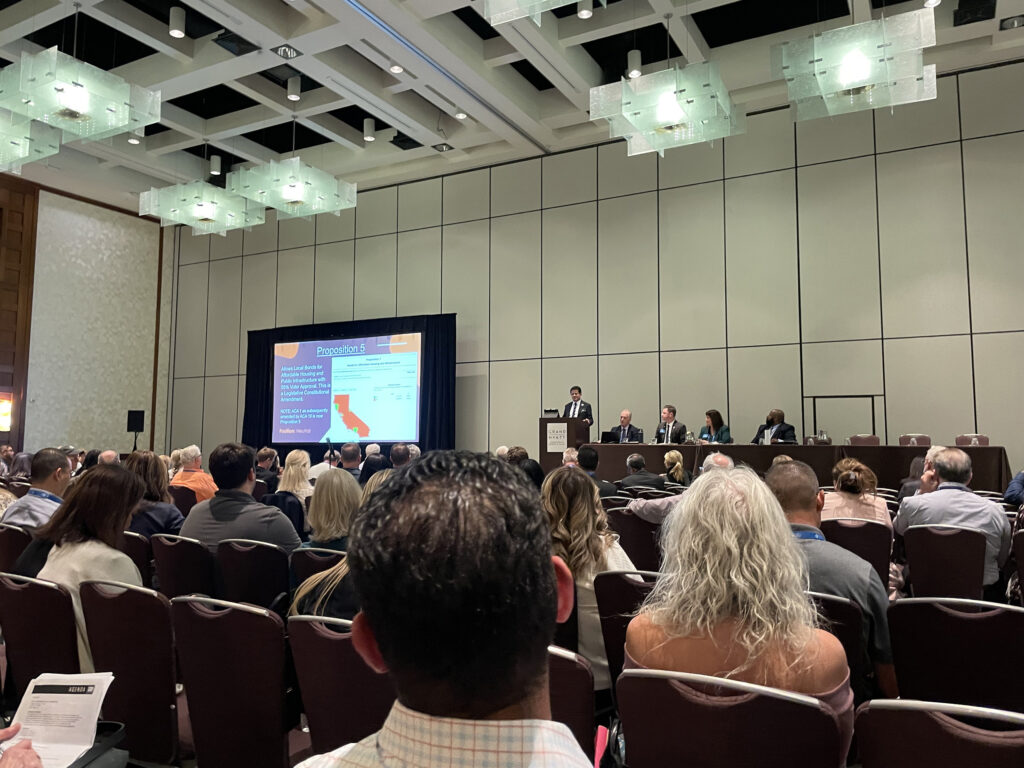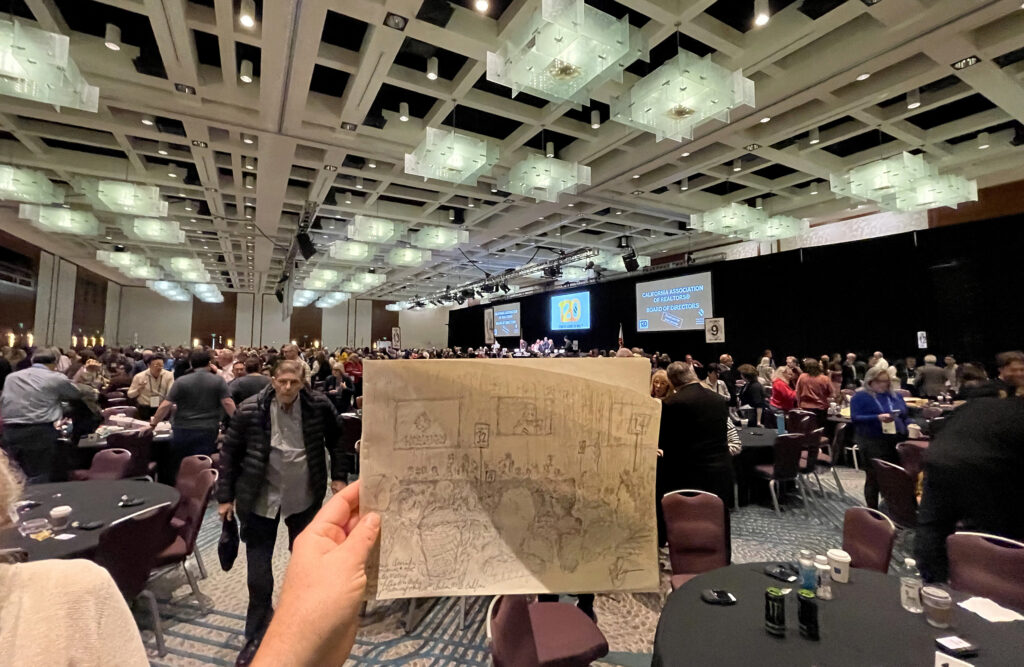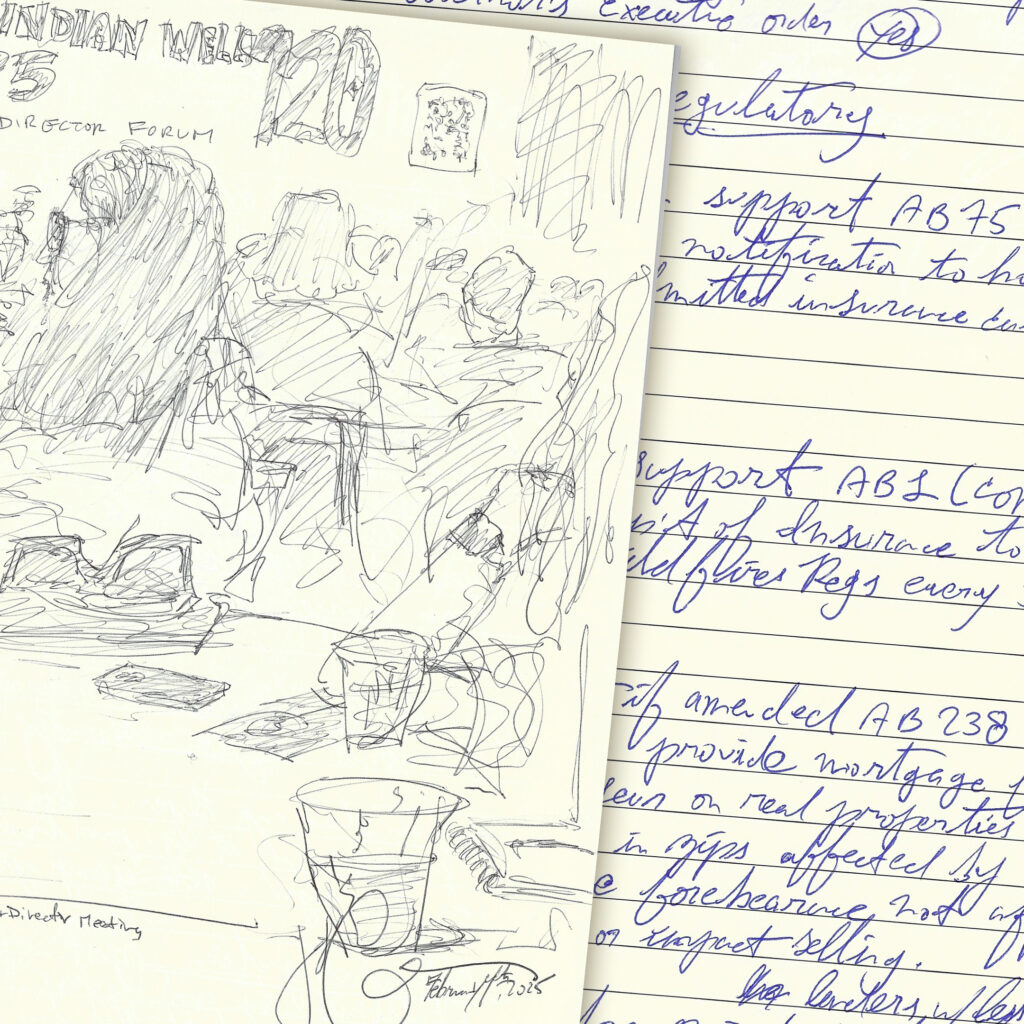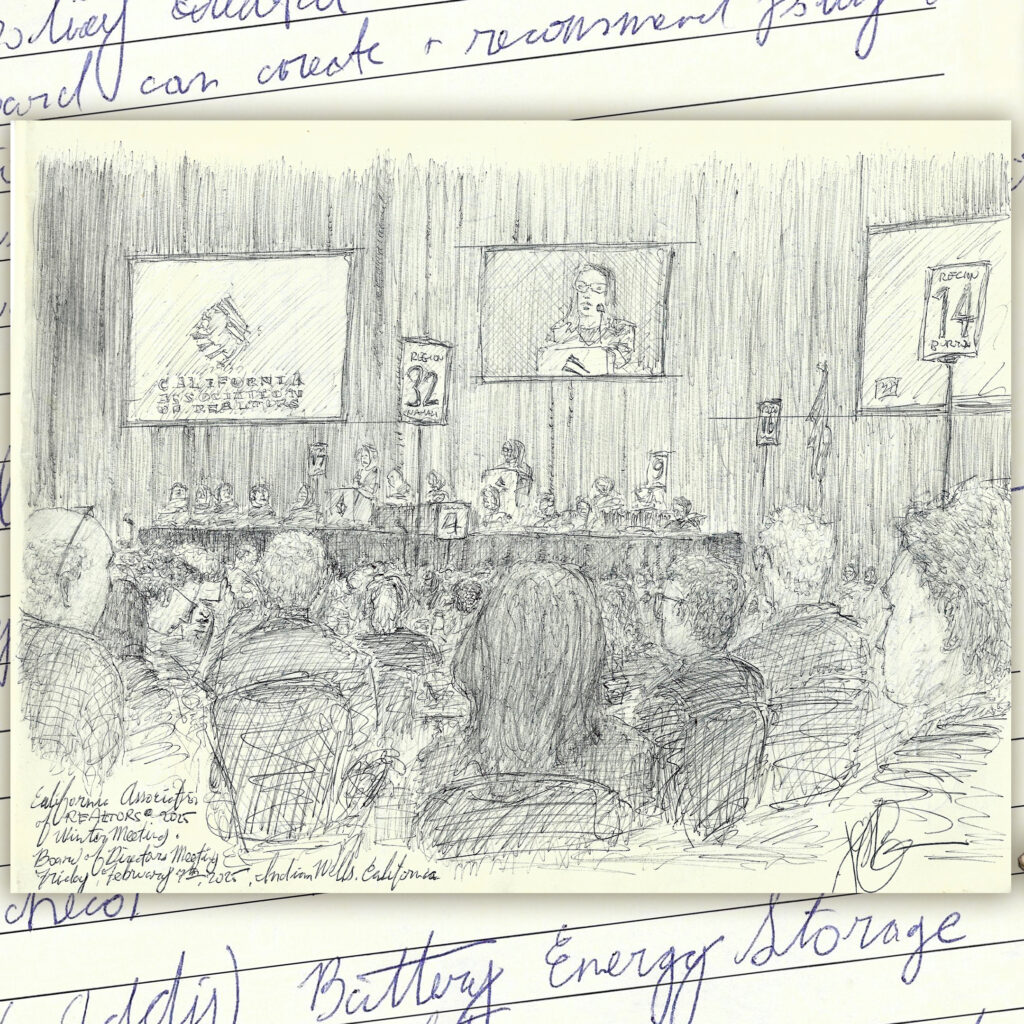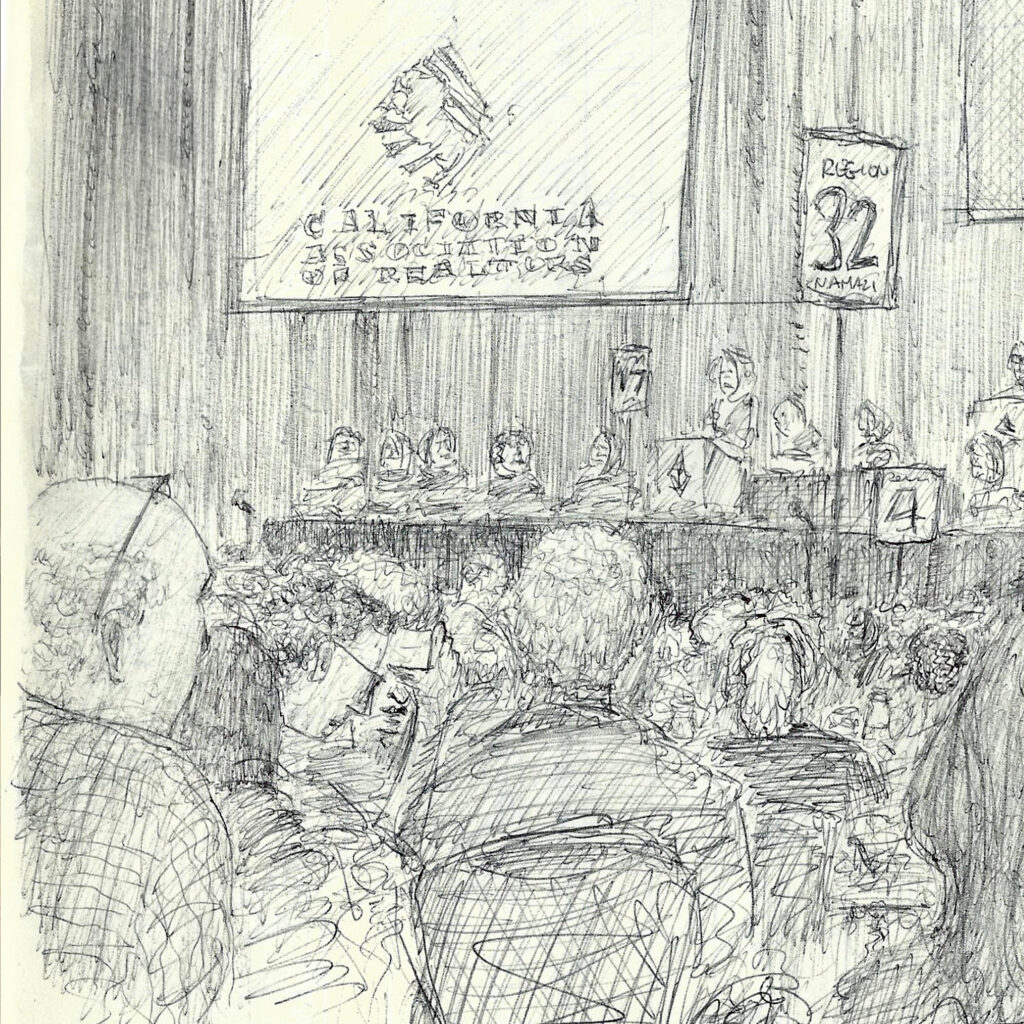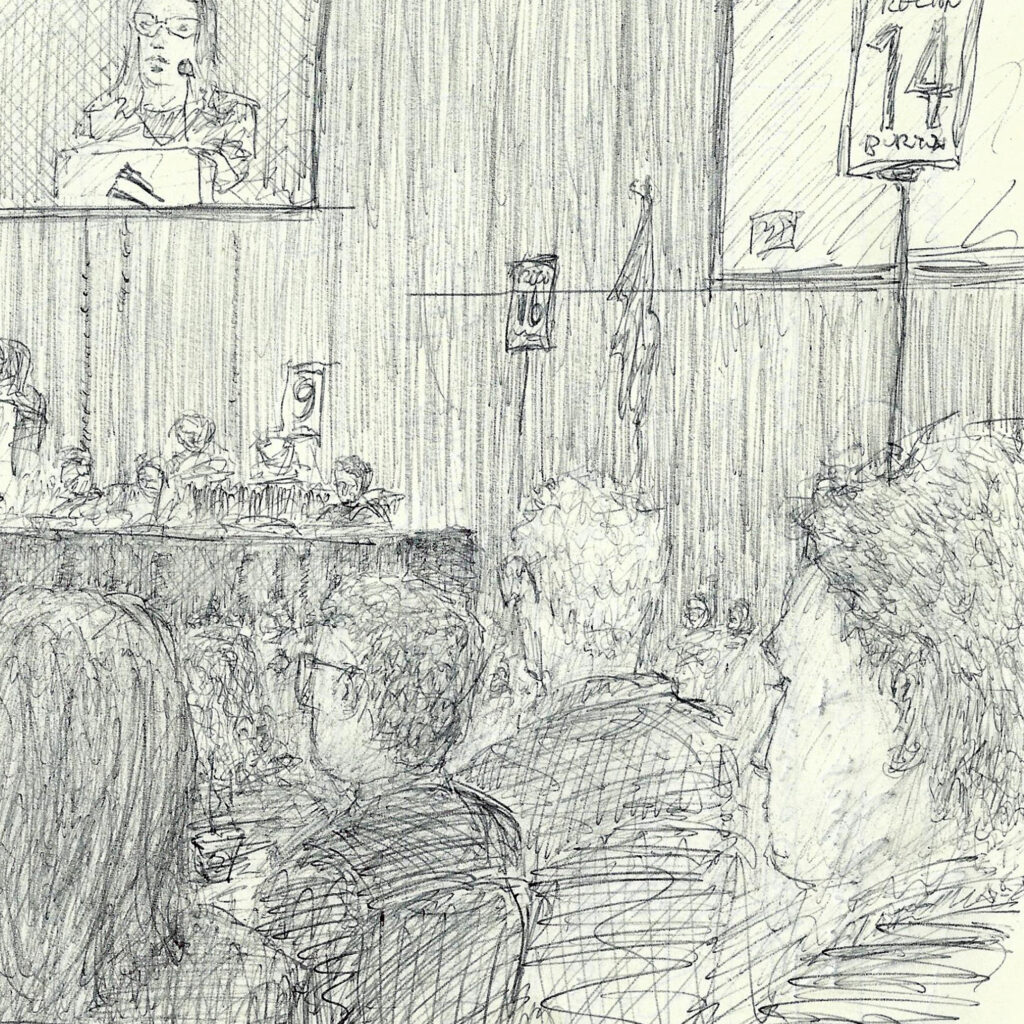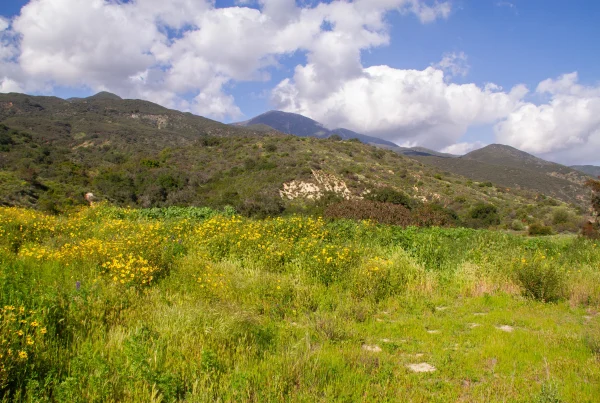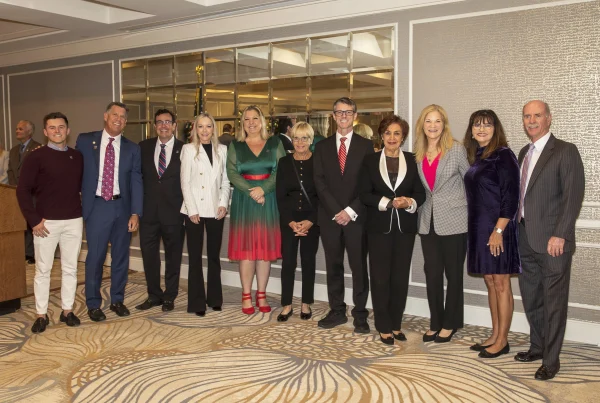C.A.R. State Director advocacy alert! 😉
I am privileged to be a California Association of REALTORS® (C.A.R.) State Director and as such, I am tasked – along with another 800 C.A.R. Directors – with helping to think through, craft & and advance stances on public policy, statewide & local land use initiatives, fight abusive and obtrusive legislation and more!
I serve on three committees throughout the year – Local Government Policy, Environmental Sustainability and the Legislative Committee, which is my favorite because all the heavy topics that are decided on in other committees come back through Leg for a second look and vote – never a dull moment in that committee and that’s the one I report on, so I have to pay extra attention to the goings on.
This time around, the C.A.R. Winter Meeting was held in Indian Wells, which is a much-loved spot at that time of year; a few of the topics we covered were:
Californians for Homeownership
The public advocacy group, Californians for Homeownership, continue to work to support housing affordability and the development of housing throughout the state using impact litigation; a few recent examples of their advocacy efforts include:
Housing Element Lawsuits
Californians for Homeownership’s litigation campaigns to enforce California’s Regional Housing Needs Allocation (RHNA) and Housing Element laws. These laws require cities across the state to make sure that their zoning and land use rules allow for the development of housing sufficient to meet regional housing needs. Recently, the organization successfully defeated an appeal of one of its signature housing element litigation wins, against the City of La Cañada Flintridge.
Excessive and Unlawful Fees
Excessive development fees, often imposed by cities and counties with no legitimate legal justification, are a major driver of housing affordability problems in California.
Intervention in Anti-Housing Lawsuits
CEQA lawsuits and other types of legal challenges to project approvals are frequently used to delay or stop housing development. These lawsuits often pit developers against more sympathetic parties, and inserting a strong pro-housing voice into these cases can help shift the balance in favor of housing development. Californians for Homeownership was recently granted permission by the trial court to intervene in a lawsuit seeking to block housing that has been approved in unincorporated Orange County.
Battery Energy Storage Systems (BESS) & AB 303 (Addis)
State law enacted in 2022 – AB 205 (Energy) – permits energy companies like Sempra, PG&E and So Cal Edison to bypass local control and to apply to the California Energy Commission who has the sole discretion to approve the placement and development of a battery storage facility (the law sunsets in June 30, 2029). AB 303 proposed to eliminate the California Energy Commissions unilateral authority to approve a battery energy storage system facility and will ensure local communities have the opportunity to weigh in on placement and safety necessary to avoid catastrophic wildfire events.
We moved to have C.A.R. “SUPPORT” AB 303 (Addis), which would return local control of permitting for battery energy storage facilities, prohibiting these facilities from being sited in locations that include environmentally sensitive areas, housing, schools, and healthcare facilities.
Of major concern to our region locally in South Orange County is the BESS project slated for development in San Juan Capistrano on land that Saddleback Church sold the project developers. Most would agree we need to invest in & develop sustainable energy solutions, but part of the state law in 2022 that permitted energy companies to forgo local community input is at the heart of the battle over the proposed SJC facility – the proposed project is located adjacent to the 5 freeway (an indisputably important transportation corridor), it is on the Trabuco Creek watershed that runs to Doheny Beach, and it is downhill from a large swath of homes in Laguna Niguel that sit just above the facility.
If the facility were ever to have a fire, as others have in the state, it likely would be an environmental & economic catastrophe for the area.
Had the project been run through the normal local community channels, it probably would have been met with extreme resistance and not have been green-lit for development. AB 303 (Addis) seeks to restore some of that control.
Fun Stuff
Here are a few photos from the week, with some drawings from the meetings near the end:
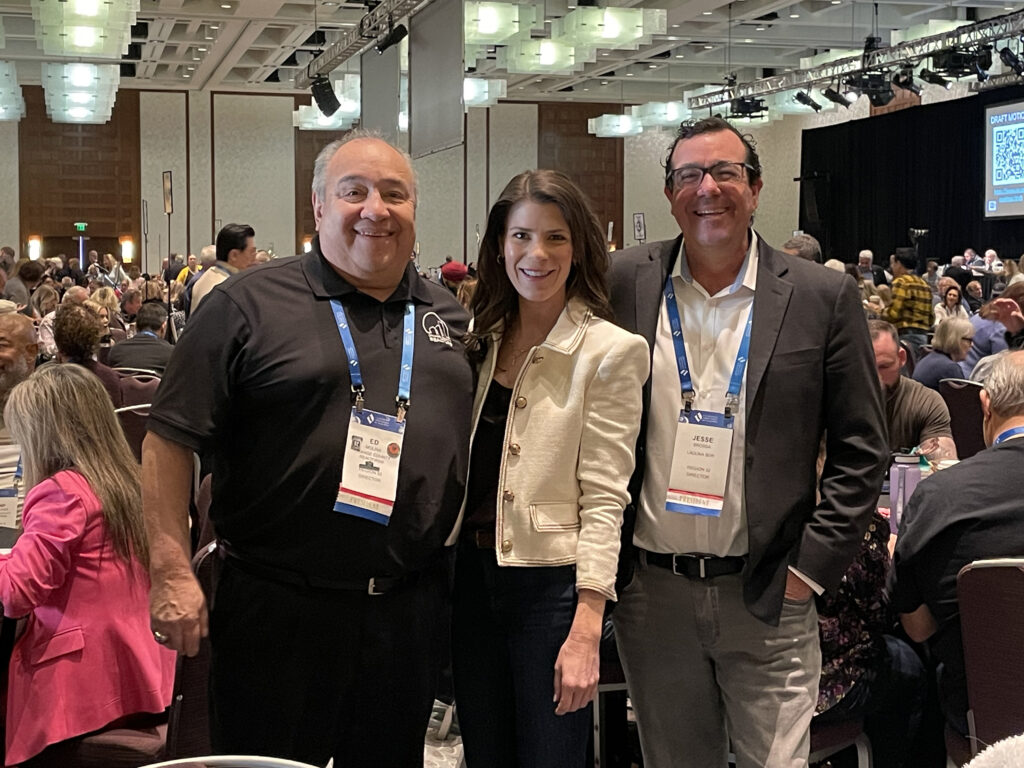
The Three Presidents. From the left, OCR’s President, Ed Molina, NBAOR’s President, Natalie Shaw, and yours truly – LBOR’s President, Jesse Brossa
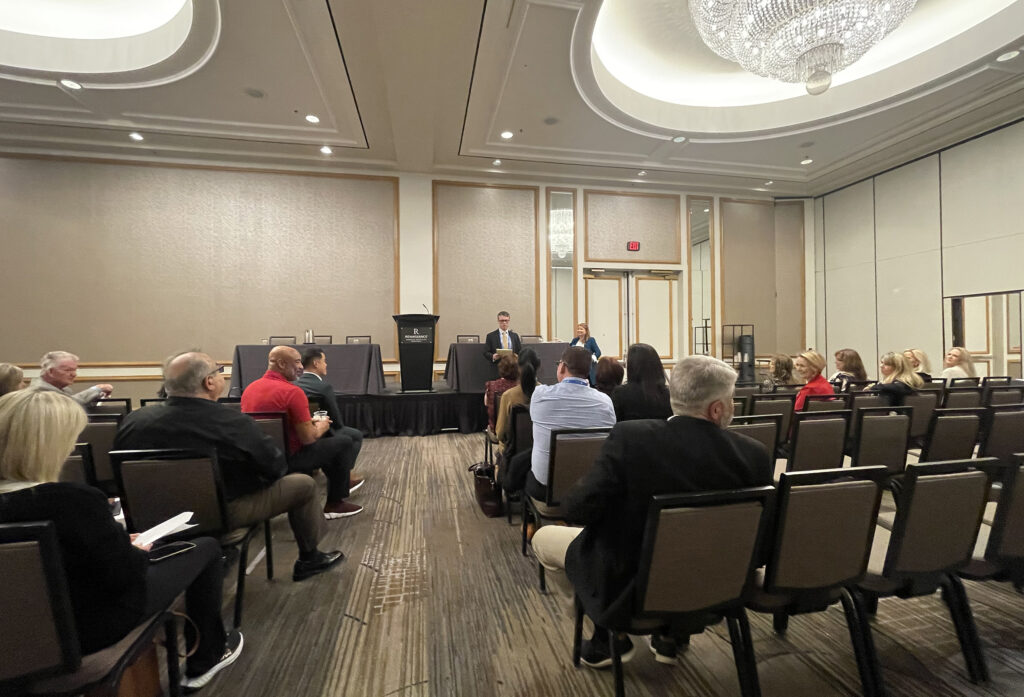
Mid-week Region 32 Caucus meeting where LBOR + NBAOR & OCR meet up to discuss & report on our committee news
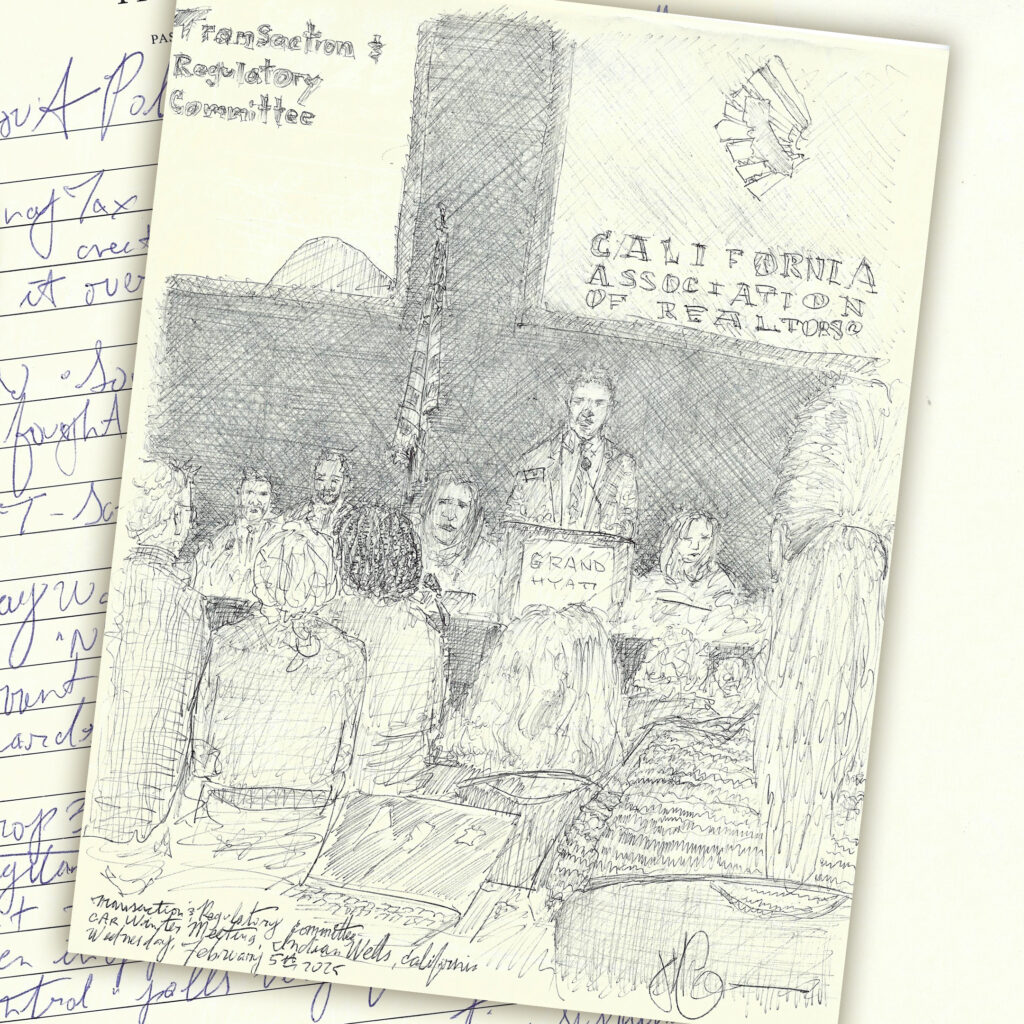
Ink drawing of the Transaction & Regulatory committee meeting at the C.A.R. 2025 Winter Meeting in Indian Wells, CA

Ink drawing of C.A.R. Past President, Melanie Barker, at the C.A.R. 2025 Winter Meeting in Indian Wells, CA





